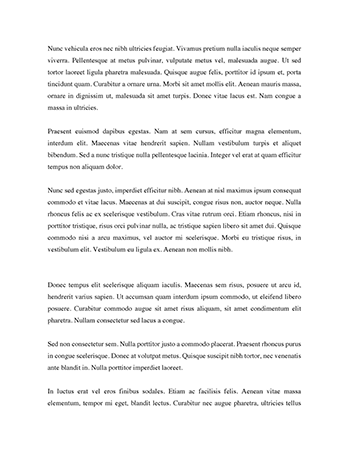
Jonathan Marshall Ms. Herring English 11 - Great Gatsby Essay 3/27/13 Period 5 Dark Side of Money There's only one thing that truly rules our world that we live in today. It's what pretty much everybody strives for, and it's the only reason why people want to be successful. Some believe it brings happiness and joy. This "thing" is a necessity for life
Money and The Great Gatsby Though the Great Gatsby is only nine chapters long, F. Scott Fitzgerald was able to convey many messages in this short book. The most recurring and powerful message was one dealing with money. In the roaring 1920’s when The Great Gatsby took place, how you obtained your money was very important and determined who you acquainted yourself with. It basically came down to the fact that there were two classes of people, those who were born with money and those who had to.
Benjamin Franklin. Happiness can come from several different aspects in life, and many say that happiness is given through the way you live life and how one receives it. The Great Gatsby, by F. Scott Fitzgerald written in 1925, portrays what seems to be a love story between two individuals displaying the American dream of wealth and happiness while it actually.
Premium Social class , Arnold Rothstein , The Great Gatsby 1317 Words | 6 Pages
Money: Crime and Great Gatsby

Core 4/9/14 Money Cannot Buy Happiness Do you ever feel like there’s no purpose left in life? That feeling occurs when the happiness inside of you goes away. For many people, money is the most important thing in life next to food to eat and a home to live in. Though for all of these, you need money. That’s where the phrase “money can buy happiness” comes from. Just because money can buy the basic things you need in life, many people think that money can just as easily buy happiness as well. .
Premium F. Scott Fitzgerald , The Great Gatsby , Jay Gatsby 1735 Words | 7 Pages
Heather Johnson English 1000 9 July 2013 Money Can Not Buy Happiness Do you believe that your income is the main factor in determining your happiness? It is a classic debate that has reached its tentacles into the minds of our nation’s individuals and wrapped itself firmly around their minds having them strive for happiness. Money does not buy happiness. Too many Americans are so blinded by their own ignorance that they constantly pursue happiness as if it was a matter of circumstance rather.
Premium The Great Gatsby , F. Scott Fitzgerald , Jay Gatsby 695 Words | 3 Pages

Premium People , Consumption function , Economics 1316 Words | 4 Pages
Premium Scientific method , Theory , Economics 757 Words | 4 Pages
Can money buy you happiness? It is a classical debate, sparked by the left-wing communists and religious leaders who suggest that a person can live a full life without the pursuit of money, and instead one must look to a more spiritual existence above the material desires. It is perhaps conceivable in a century gone by where people grew all their food and believed in witches, that a human could forge a fulfilling existence without the need of money to satisfy our desires. However in today’s society.
Can money buy happiness? Happiness is a feeling we have for many reasons. Many objects and materials can provide the happiness many humans desire. Money can and have fulfilled that happiness which one lacks for many years. There are many ways I think money does buy happiness. Money increases quality of life in which buys happiness. This is only true if one lives within his means, lives a modest lift style and pursues happiness the right way. I think most people believe happiness is bought.
Can money buy happiness

Can Money Buy You Happiness? Society today, with the way advertisement is, and how famous people are betrayed in the news and magazines, are showing us that the more money you have, you could have lots of happiness. As a matter-of-fact you could have anything you want. It can help get you out of trouble when needed. Have your own T.V, show or radio show. Immigrants are being told that your dreams can come true working and living in the United States. The way that I was raised was sure different.
In today's materialistic world, the phrase that ‘money can't buy happiness' is tending to be proved hence otherwise. Social research and surveys have shown results based on an individuals income, health and the political scenario which is dominant in his or her region. It is quite obvious that the gap between the privileged and the not so is growing into a great divide giving rise to different class and status, thus defining ones social circle. It should therefore be understood how an individuals.
Can Money Buy Happiness? Introduction Over the years, there have been heated debates on whether money can buy happiness. Majority argue that money cannot, by all means, buy happiness. However, a considerable body of economic researchers thinks otherwise. Different studies seem to agree, that to a certain extent, money can buy happiness. Therefore, it appears that money can buy happiness, to some extent if used appropriately. In order to be able understand how money, as an item of exchange, can buy.
"Happiness is a mental state of well-being characterized by positive emotions ranging from contentment to intense joy”. Notice that "happiness" is within the range of "contentment" to "intense joy." Every single thing in the world which brings contentment or joy costs money and therefore, it is money which brings happiness. Nothing can be yours without money being spent either by the person experiencing this happiness, or by others spending money so that they can be happy. For example, even people.

In short, “Wants” are never-ending. And if the definition of your happiness based on it then it’s hard to imagine that one will get happiness
What is happiness? Is it something you get when you have a mansion to stay, a pool to bathe or yacht to sail. Or is it a sense of freedom, love, content, self-realization. There are two types of people who say, “Money can’t buy happiness” either those who never had plenty of money or those who had a plethora of money and still find themselves unhappy.
Now he wants a better salary, a home in the city, a sports bike or expensive sedan when he crosses this stage he wants more. He wants to build a villa, wants to travel the world, he engaged with newer hobbies like golf, sailing. This journey goes on and on until one day you reach where your daughter wears 100 crores diamond-studded dress and you surprise your wife with a Jet Plane as a birthday present.
Life is very simple in its real form, we make it complicated. There are some basic rules to life one of which is “Needs and Wants”. “Needs” are those things which are basics of human survival like food, clothes, shelter. In today’s modern day’s sufficient money, education, electricity, transportation can also be counted as “Needs”. And then there are “wants”, once a man fulfils his basic “Needs” he doesn’t stop there, he wants more.
Needs V/S Wants
There are businessmen in India who earned in millions, they do buy pleasures but they get happiness by doing charities, social work. That the source of their happiness. India’s top businessmen Mr. Ratan Tata spends 60% of earning to social services, NGO, and charity.
If gas tank dries up you can still drive it on a slope but that will be risky. Human life also works like that, money is important to run the life and it is very difficult to survive without money. But when earning money is the only goal then you struggle for happiness.
Money is a very important part of modern life, one cannot survive without it. But one should not make money as the sole source of happiness. Money can buy pleasures but not happiness. Keep these two things different. One can be ambitious and happy the same time if he cracks the basic rule of life.”Life is Simple, We make it complicated”
In contrast, you can buy pleasure with money. Actually, you need a lot of money to buy pleasures. Wise men don’t mix up happiness and pleasure. But a common man thinks pleasure as ultimate happiness and end of the day finds himself in depressed, angry, alone but with a lot of money.

The Monitor spoke to Kenny about his findings and about the significance of his research for those of us who don't have a net worth of $25 million or more.
Some were concerned about motivation. They worried that if their children have enough money and don't have to worry about covering the mortgage, what will motivate them? How will they lead meaningful lives? This is where the money might get in the way and make things confusing, not necessarily better. Very few said they hoped their children made a lot of money, and not many said they were going to give all the money to charity and let their kids fend for themselves. They were, however, really interested in helping their children figure out how they could live a meaningful life. Even though they did not have to "make a living," they did need to make a life.
We wanted to try to understand the deeper motivations of people in high net worth households. They are rarely questioned about this, and instead are asked whether they would like a Mercedes or a Lexus. Do they prefer Tiffany's or Cartier? Most surveys of high net worth households are marketing surveys to sell a product, so the questions that are asked are pretty narrow.
Extremely wealthy people have their own set of concerns: anxiety about their children, uncertainty over their relationships and fears of isolation, finds research by Robert Kenny.
What prompted you to study wealthy families?
Then the overwhelming question becomes: What is the best use of my time and resources? After a while one can actually become stymied and even dispirited. There are plenty of folks who are more than willing to make suggestions, but it takes a lot of individual work to develop the psychological freedom to make decisions. For most, that's not a problem because time and money are limited, so the choices are limited. Being willing to try to understand the challenges of having an oversupply of time and money can be difficult for therapists.
The takeaway from all of this is that there seemed to be a trend that said you can't buy your way out of the human condition. For example, one survey participant told me that he'd sold his business, made a lot of money off that and lived high for a while. He said, "You know, Bob, you can just buy so much stuff, and when you get to the point where you can just buy so much stuff, now what are you going to do?"
This research shows the rest of the world, who often think that if they just made one more bonus or sold one more item or got one more promotion, then their world and their family's world would be so much better, that this isn't necessarily true. There's another whole level of concerns that parents are going to have about their kids. One of those concerns is this feeling of isolation. That's actually a No. 1 concern for families with a high net worth — this sense of isolation — and the higher the wealth, the worse it gets. We know this is a very powerful feeling when it comes to one's overall sense of well-being, and these people feel very isolated because they have what most of the world thinks they want. But just because you have money doesn't mean you're not going to have a bad day every once in a while. But what you often lose when you have all this money is the friendships that support you through the difficult times.

The researchers wanted to see how people adapted to happiness. What they found was fascinating.
A recent study showed that money can buy happiness, but only a certain amount. We can call this a baseline level of happiness.
What brings you joy? What brings a smile to your face? It’s different for each of us. It may be going for a hike in the woods. It might be the laugh of a baby or a hug or watching a butterfly. It could be a friendly hello from the barista or sleeping in.
It’s been said that time is our most precious commodity. However, the #1 excuse why people aren’t doing more things that they love (hiking, spending time with friends, etc) or reaching a goal, such as a fitness goal, is a lack of time. So what exactly is going on? Well sometimes we get too caught up in either working hard to save a buck or working hard to earn a buck to realize what really matters – our time. We’re often focused more on getting more money than buying more time.
3. Money Can’t Buy Authentic Relationships.

Those who are so focused with saving every penny don’t take the time to enjoy life. Rather than getting caught up on making or saving money, focus on making more time for yourself to enjoy doing activities and seeing people who make you happy.
Your relationship with your spouse also has an impact on your happiness. We probably all have friends who are in joyous, thriving marriages even with lesser money in their bank accounts, while other marriages are filled with arguments, and a lack of love and trust despite millions in the bank.
There might be affiliate links on this page, which means we get a small commission of anything you buy. As an Amazon Associate we earn from qualifying purchases. Please do your own research before making any online purchase.
